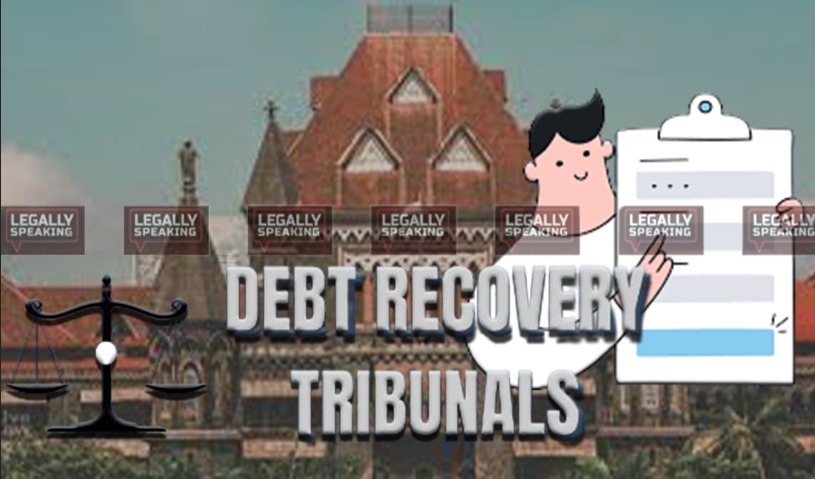
In a recent case of Yes Bank Ltd vs Union of India and Ors., the Bombay High Court interpreted Rule 5 of the Debts and Recovery Tribunal (Refund of Court fees) Rules, 2013, stating that once the Debt Recovery Tribunal (DRT) allows a refund of court fees based on an original application, the DRT Registrar cannot insist on a joint application for the same.
Justices GS Kulkarni and Rajesh S Patil emphasized that Rule 5(1) of the 2013 Rules, which addresses court fee refunds, should not be interpreted in a way that undermines the entitlement of the applicant for a refund as permitted by Rule 4.
The Court further clarified that the legal right of the applicant to receive the refund should not be denied simply because the defendant or opposing party does not consent to filing a joint application for the refund.
The order stated, “We are of the clear opinion that Rule 5(1) providing for refund of court fees cannot be read so as to defeat and/or frustrate any entitlement of the applicant for refund of Court fees as may be permissible under the provisions of Rule 4 as noted above. Merely because the defendant is not coming forward or is not available or he does not intend or is not agreeable for giving his consent for a joint application to be presented for refund of court fees, cannot defeat the legal rights of the applicant like the Petitioner to receive the Court fees.”
Yes Bank Ltd. approached the Court through a writ petition, requesting the removal of the clause “and Defendant shall file joint Application” from Rule 5 of the Debts and Recovery Tribunal (Refund of Court Fees) Rules.
The bank also urged the High Court to direct the concerned DRT Registrar to promptly release the refund amount, as determined by a DRT order, without requiring a joint application.
The background of the case involves a borrower who defaulted on a bank loan, leading the bank to initiate recovery proceedings before a DRT in Mumbai.
Following an out-of-court settlement, Yes Bank Ltd. decided to withdraw the recovery proceedings it had initiated. Consequently, the bank was instructed to adhere to the prescribed procedure for obtaining a refund of court fees in accordance with the relevant rules.
In line with this, the bank submitted an application for the refund of court fees. However, on June 18, 2022, the Debt Recovery Tribunal (DRT) issued an order stating that both the applicant and the defendant must file a joint application for the refund of court fees, as per the rules.
Displeased with this requirement, the bank approached the Bombay High Court, highlighting that it had originally paid ₹1,50,000 as full court fees when initiating the recovery proceedings.
The bank raised concerns about the practical difficulties it faces in obtaining borrowers’ consent for a joint application in cases where recovery proceedings result in outstanding amounts being paid or out-of-court settlements being reached. According to the bank, such consent is challenging to obtain in numerous cases, making the joint application requirement burdensome.
The bank argued that this requirement unfairly prejudices its interests and sought a directive from the court to the Debt Recovery Tribunal (DRT) to refund court fees without insisting on a joint application.
The respondents, including Central government authorities and DRT-II in Mumbai, countered the bank’s plea by asserting that no injustice had been demonstrated. They argued that if a settlement is reached between the bank and the borrower, all outstanding dues, including legal expenses and court fees, can be included in the settlement agreement.
The respondents put forth their argument, emphasizing that Rule 5(1) of the Rules mandates a joint application by the applicant and the defendant to prevent the bank from receiving dual benefits from both the borrower and the Tribunal. They asserted that this provision safeguards the interests of both parties and prevents unjust enrichment on the part of the bank.
Additionally, the respondents pointed out that in numerous recovery cases, financial institutions agree to settle for an amount that is lower than the outstanding dues.
The Court further noted that it is the sole prerogative of the applicant to decide whether to continue with the recovery proceedings or withdraw them in light of any settlement reached with the defendant. The Court emphasized that if the applicant chooses to withdraw the proceedings, it naturally follows that they should be entitled to a refund of the court fees. The Court drew a parallel with civil suits, where court fees are refunded to the plaintiff upon settlement. It stated that the same principle should apply in cases of recovery proceedings.
The Court held that the requirement of a joint application for a court fee refund, in contradiction to the order issued by the DRT allowing the withdrawal of the recovery application and granting a refund, is not valid.
Therefore, the Court interpreted the 2013 Rules to mean that once the DRT grants a refund of court fees to the applicant and the entitlement to the refund has been determined by a judicial order, the Registrar of the DRT cannot insist on a joint application for the refund.
However, the Court clarified that if there are any doubts regarding the entitlement to a refund or if the judicial order does not clearly grant a refund, a joint application may be necessary.
Advocate Vishal Tambat represented the petitioner, while Advocate Savita S Ganoo, instructed by Advocate Smita Thakur, appeared for the respondents.




